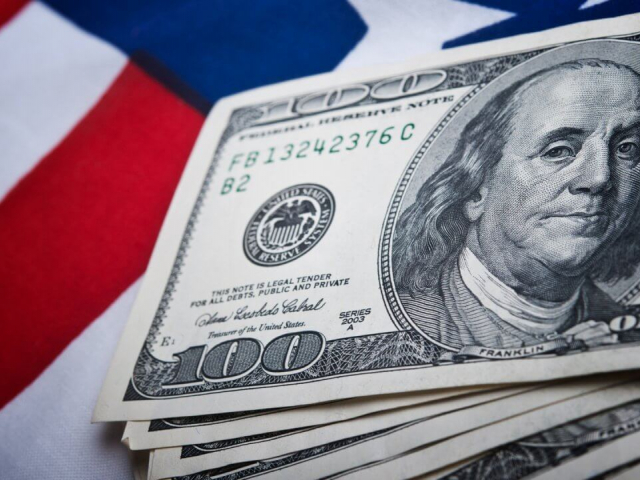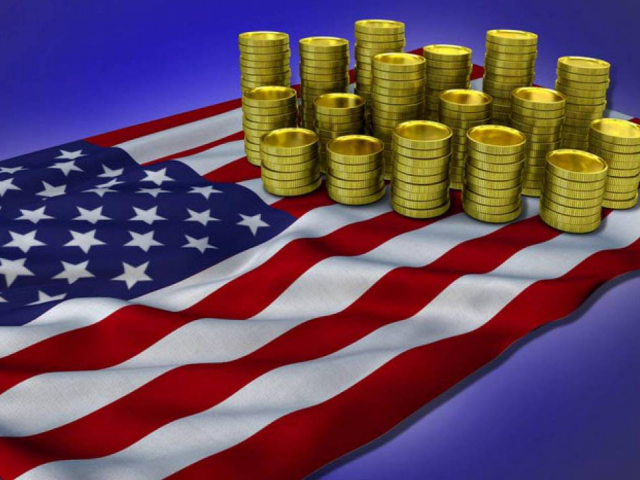Declining share of USD in global reserves
According to Brookings Institution researchers, one of the key issues threatening the dollar's leading position is a gradual decline in its share of global reserves. Over the past few decades, the use of the dollar in international financial markets has steadily decreased. Nevertheless, the greenback still dominates central bank reserves and global trade. In early 2024, the dollar accounted for 59% of all global reserves, down from 71% in 1999. This decline has raised investor concerns that the dollar could lose its top spot in global financial markets. However, most experts agree that such a catastrophic scenario is unlikely.
US sanctions
Over the past two years, US sanctions, primarily targeting Russia and its allies involved in the Russia-Ukraine conflict, have been rigorously enforced. These measures have sparked a push for de-dollarization among BRICS nations and other countries whose leaders have expressed a desire to move away from the US dollar. In particular, Russia has taken steps to de-dollarize its economy, shifting its focus to the yuan-ruble exchange rate and taking the lead in creating an alternative payment platform independent of the US dollar. China has followed suit, partly in response to additional sanctions recently imposed by the US Treasury Department. As Beijing aggressively promotes the yuan in global markets, Brookings researchers warn that if the United States continues to overuse its sanctions and fails to develop a coherent economic doctrine, the dollar could lose its status as the world’s dominant currency.
Rising US national debt
Another significant risk to the dollar is the recklessly ballooning US national debt. Analysts at the Brookings Institution are sounding the alarm that growing debt levels could make dollar holders more cautious, especially amid fears that the US might struggle to meet its obligations. In such a scenario, investors could flee to other assets. The US debt balance has not yet reached critical levels, but things could get worse at any time. Analysts note that the rapid pace of US government spending has not been a boon to market conditions. In 2023, Fitch downgraded the US credit rating, citing a "steady deterioration" in governance standards. With the political climate in the US becoming increasingly volatile, continued political and economic instability could undermine investor confidence in the dollar, the Brookings Institution added.
Advancements in payment technologies
Advancements in payment technologies are seen by Brookings analysts as the third threat to dollar hegemony. A growing number of innovative financial tools worldwide are emerging as potential competitors to the greenback. This situation could dampen demand for the dollar, which has long been considered the most attractive medium of exchange. While the dollar currently maintains its status as the most widely used payment method, the situation could change in a hurry. The dollar's strength is partly supported by the fact that most national currencies are pegged to the dollar. However, there are pitfalls. For example, in the near future, China and India may no longer need to convert their currencies into dollars for trade, opting instead to exchange the renminbi directly for the Indian rupee. This would reduce reliance on "transport currencies" such as the dollar, Brookings noted.
Central Bank Digital Currencies (CBDCs)
Rounding out the top five threats to the dollar’s dominance is the growing use of central bank digital currencies (CBDCs). These digital currencies, issued by central banks, have the potential to simplify and reduce the cost of financial transactions. The Chinese government is currently developing one such CBDC, while CIPS, China’s Cross-Border Interbank Payment System, has been gaining momentum over the past few years. Meanwhile, the Federal Reserve has created its own instant payments network but has made little progress in developing a CBDC. Brookings researchers caution that this approach could leave the United States falling behind other nations where digital payment technologies are advancing rapidly. Despite these warnings, most currency experts do not see de-dollarization as a significant threat to the US economy and its national currency. Currently, financial markets lack any viable competitors to the greenback. Moreover, countries that are determined to de-dollarize risk a host of negative economic consequences, including a slowdown in economic growth and a loss of investment appeal, analysts conclude.
-
Grand Choice
Contest by
InstaForexInstaForex always strives to help you
fulfill your biggest dreams.JOIN CONTEST -
Chancy DepositDeposit your account with $3,000 and get $10000 more!
In January we raffle $10000 within the Chancy Deposit campaign!
Get a chance to win by depositing $3,000 to a trading account. Having fulfilled this condition, you become a campaign participant.JOIN CONTEST -
Trade Wise, Win DeviceTop up your account with at least $500, sign up for the contest, and get a chance to win mobile devices.JOIN CONTEST






 504
504 5
5









